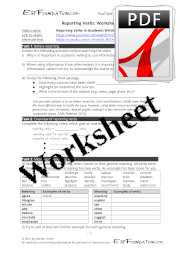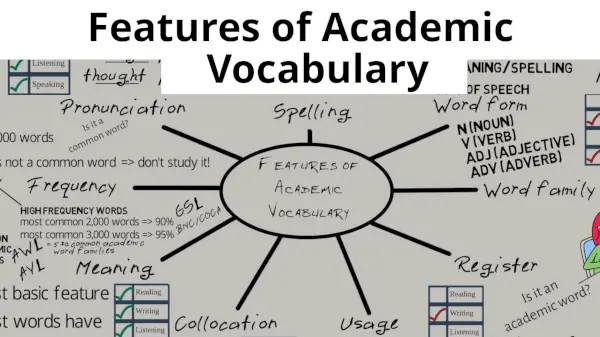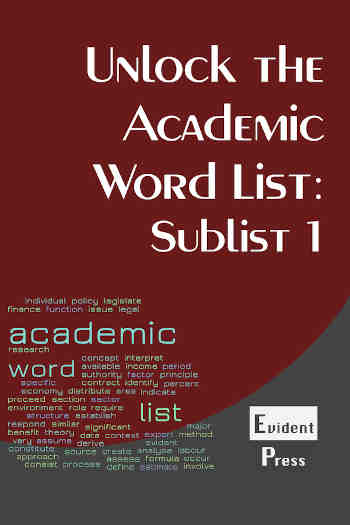Show AWL words on this page.
Show sorted lists of these words.


 







|

For another look at the same content, check out the video on YouTube (also available on Youku). There is a worksheet (with answers and teacher's notes) for this video.
As mentioned in the previous section on what to study, the information you need about a word will depend on what you want to be able to do with it. For example, if you simply want to understand it in a reading text, then knowing the meaning is enough. If, on the other hand, you want to be able to use it in writing or speaking, then other information is important, such as spelling and pronunciation. This page considers all the important information you will need to know about English vocabulary in order to study it effectively, namely meaning, spelling, pronunciation, part of speech, word family, frequency, register, usage and collocation.
Meaning
 Podcast is loading. Too slow? Click here to access.
Podcast is loading. Too slow? Click here to access.
Many words in English have several meanings. While some meanings of a given word might be similar, others could be very different. The word head, for example, has 32 meanings listed for the noun form (according to the Wordnet database) and another nine for the verb form. The following are three of the meanings for the noun form.
1. the upper part of the human body or the front part of the body in animals; contains the face and brains
4. a person who is in charge. E.g.: the head of the whole operation [Syn: chief, top dog]
29. a toilet on board a boat or ship.
The first meaning is a very basic meaning that students would learn at the beginning level. The meaning 'a person who is in charge' is different from the first meaning, but still fairly close (this is an example of a metaphorical extension, as a person who is in charge is at the top, in the same way the head is at the top of the body). The meaning 'a toilet on board a boat or ship', however, is completely different from the other meanings of the word. It is also far less common, and not suitable for academic English use.
As mentioned in the academic vocabulary section, the most common meaning of some words in academic English is different from the most common meaning in general English, for example:
- underline: most commonly used to mean 'emphasise' in academic English, rather than 'draw a line under';
- discipline: meaning 'a subject of study' rather than 'training people to obey rules';
- population: meaning 'all individuals who could possibly be included in a survey' rather than 'the number of people living in a country'.
In general, when studying vocabulary it is best to study words in context (for example in a reading or listening text), and to study the meaning as it is used in that context, focusing on a single meaning rather than all possible meanings.
Spelling
Spelling is important if you want to use the word in your writing. English spelling is notoriously difficult, with many words spelt differently from how they sound. This is obvious when examining homonyms (words which sound the same but are spelt differently). For example, the words words tort and taught, which have very different meanings, are both pronounced exactly the same way, namely /tɔt/, while the words tuff and tough are both pronounced /tʌf/. The spelling of the first word in each case more closely resembles how it is pronounced, though in fact those two words are far less common than the other two spellings. Almost every phoneme (unit of sound) has more than one way to spell it. Some spelling mistakes are common even among native speakers, such as confusion between their and there.
Pronunciation
Knowing how a word is pronounced is especially important if you want to use it in your speaking, or understand it when listening. Pronunciation, like spelling, can be a difficult area, with some words which are spelled similarly being pronounced in different ways. For instance, tough, though and thought, which all contain the combination -ough-, are pronounced /tʌf/, /ðoʊ/ and /θɔt/ respectively. The main difference here is the vowel sounds. Indeed English has a particularly large number of vowel sounds when compared to other languages, and these tend to be the area which learners struggle with the most, with consonants being relatively straightforward. The vowels of English differ considerably between dialects, which is another source of difficulty.
An additional component to understanding how a word is pronounced is the position of the stress in words with more than one syllable. This can sometimes change across different word forms, a phenomenon known as shifting stress, making pronunciation even more difficult. For example, eCONomy and econOmics (economy has the stress on the second syllable, while in economics it is on the third), and CONtrast (n) and conTRAST (v).
Part of speech
It is important to know the part of speech of any word you study. This means whether the word is a noun, verb, adjective or adverb. Without this information, it will be difficult to use the word accurately in speaking or writing. It is useful, when studying new vocabulary, to study the word family (see below), which will entail studying all parts of speech associated with a new word at the same time. This will enable you to use the word more flexibly in your writing or speaking.
Word family
A word family is a group of words which are 'related' by a common base word. For example, the word create (verb) is in the same word family as creator, creativity and creation (all nouns), creative (adjective), creatively (adverb) and recreate (also a verb). Other members of the word family are formed by adding prefixes or suffixes to the base word or part of it. In this case, the base form creat- is changed to a noun by adding -or (for the person) or -ivity or -ion (for the thing).
Learning common prefixes and suffixes and studying words in word families will help you to build vocabulary more quickly. It can also help in guessing the meaning of unknown words. For example, knowing that creativity is a noun, meaning 'being creative', might help you to understand the meanings of objectivity ('being objective') and passivity ('being passive').
Frequency
Some words are more frequent than others. Words which are extremely low frequency (i.e. uncommon words) are not worth learning unless they are important in your particular field of study. Words which are high frequency, however, need to be studied as you will probably encounter them on a regular basis, in reading or listening. It can be difficult to know how frequent a word is. Some dictionaries will indicate the frequency of a word. Word lists can also help out here, for example the General Service List (GSL), which is a list of the most common words in English, sorted by frequency, or the Academic Word List (AWL), which is a list of the most common words used in academic texts not contained in the GSL, also listed by frequency (sublist 1 is the most common, sublist 2 the next most common, and so on).
You can also use a vocabulary profiler to understand whether words are high frequency, mid frequency, or low frequency.
Register
Register refers to the language used for a particular purpose or in a particular social setting. Academic English uses a particular register, employing more formal language than in other contexts such as story writing or chatting to friends. Although the term register is similar to formality in the case of academic English, it is not synonymous. Some very formal words and language, such as might be used in writing a contract (e.g. hereinafter and heretofore), would be considered too formal for academic English. In addition, the register can vary across academic English genres, with some less formal words or phrases used in academic presentations or lectures, such as like (to give examples), OK (to signal a transition), and but and so (to contrast or conclude), which are less common and even considered wrong in academic writing. In order to improve academic vocabulary use, it is important to be aware of how formal a word is, and whether it is suitable for use in academic writing or speaking.
Usage
It is not enough to study single words in isolation. If you want to expand your vocabulary and be able to use the words productively, in your speaking or writing, you need to understand how they are used. This includes studying prepositions which are associated with particular words (such as prepare for, beneficial for, skilled in, associated with), or verb forms which might follow the word (such as prepare to do, unwilling to do, consider doing). A related area of vocabulary study, which similarly considers how words combine with others, is collocation, which is considered next.
Collocation
A collocation is two or more words which frequently appear together (the prefix co- means together, while the suffix -location means place). Unlike with grammar, it is not possible to define rules for how collocation works. Some combinations just sound right to native English speakers, while others sound wrong. Modern computers and corpus linguistics (the study of language in real texts) has made it possible to extract common collocations.
There are several types of collocation possible in English. These are shown below, with examples taken from the Academic Collocation List (ACL).
- adjective+noun (by far the most common type, e.g. academic achievement, active participant, cultural diversity, high frequency)
- verb+noun (the second most common type, e.g. accept responsibility, develop (a) theory, raise (a) question, use statistics)
- noun+noun (e.g. background knowledge, business sector, climate change, survey data)
- adverb+adjective (e.g. acutely aware, almost identical, broadly similar, virtually impossible)
- adverb+past participle (e.g. closely connected (to/with), commonly referred (to as), directly related (to), poorly understood)
- adverb+verb (e.g. briefly describe, clearly understand, closely resemble, strongly agree)
- verb+adverb (e.g. apply equally, communicate effectively, think differently, vary significantly)
- verb+adjective (e.g. become aware, make available, prove useful, seem unlikely)
Another possible type is verbs+prepositional phrase, such as look up and stand for. These are phrasal verbs (also called compound verbs or multi-word verbs) and are not true collocations, since they form a single unit which cannot be understood based on the meaning of the individual words.
Checklist
The following checklist summarises the features of vocabulary.
| Area | OK | Comments |
| I understand that English words usually have many meanings, some of which are more common in academic English than others. | ||
| I understand about spelling in English. | ||
| I understand about English pronunciation, and why vowel sounds and word stress are areas to consider. | ||
| I understand why it is important to study the part of speech of new words. | ||
| I know that English words are usually part of a word family, and why prefixes and suffixes are an important part of vocabulary study. | ||
| I understand why the frequency of a word is important, and know some common lists which give the most frequent words for general and academic use. | ||
| I know what register means and understand why it is important for academic (formal) English. | ||
| I understand that studying vocabulary is not about single words and that it is important to think about usage. | ||
| I know what collocations are and the different types that occur in English. |
Next section
Read more about building vocabulary in the next section.
Previous section
Read the previous article about what to study.






